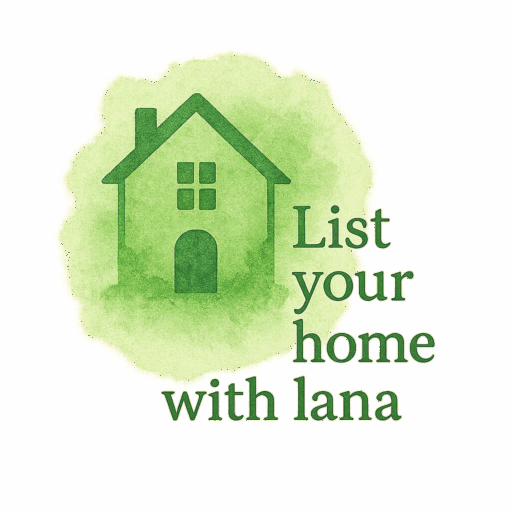Buying a home is a major life goal for many people—but let’s be real, it doesn’t come cheap. Whether you’re a first-time buyer or dreaming of that perfect upgrade, learning how to budget effectively is your golden ticket. In this article, we’ll dive into 10 budgeting tips that will help you afford your dream home without drowning in debt.
If you’ve ever thought, “How will I ever afford that perfect place?” — this guide is for you.
Why Budgeting Matters When Buying a Home
Financial Clarity Sets the Foundation
Before we talk dollars and cents, let’s talk clarity. Budgeting helps you clearly understand your financial reality. Knowing exactly what comes in and what goes out means you can make informed decisions and avoid heartbreak later.
Avoiding Common Pitfalls
Skipping the budgeting phase is like jumping into a pool without checking if there’s water. Many new buyers forget to factor in all the additional costs of homeownership—and it can come back to bite you.
Need a crash course on what not to do? Check out these home buying tips to avoid rookie mistakes.
Tip #1: Know What You Can Afford
Use Online Mortgage Calculators
Start by figuring out your price range. Use tools that estimate how much you can borrow based on your income, debts, and down payment.
Recommended Tools for First-Time Buyers
If you’re a first-time buyer, take advantage of resources like this first-time buyer guide and home financing tips. They’ll give you an edge when estimating realistic goals.
Tip #2: Start With a Down Payment Goal
How Much Should You Save?
Aim for at least 20% to avoid Private Mortgage Insurance (PMI). Not sure how much that is? If your dream home costs $300,000, a 20% down payment is $60,000. Don’t panic—start small and stay consistent.
Need a game plan? Browse our detailed home financing section.
Tip #3: Track Every Dollar
Budgeting Apps That Help
You can’t manage what you don’t measure. Use tools like YNAB (You Need A Budget), Mint, or GoodBudget. Keep your eyes on the prize and avoid those random $50 Amazon orders.
Looking for more homeowner hacks? Visit our homeowner tips section.

Tip #4: Cut Non-Essential Spending
Subscription Audit: Do You Need All of Them?
It’s time to get honest. Do you really watch Netflix, Hulu, HBO Max, Disney+, and Prime Video every month? Probably not.
Reducing your spending by just $100/month adds up to $1,200 a year—money that could go straight into your home fund.
For more financial savvy, don’t miss our checklist library.
Tip #5: Boost Your Income Streams
Freelance, Part-Time, and Passive Options
Can you pick up a weekend gig or sell your skills online? Platforms like Upwork, Fiverr, and TaskRabbit can help you rake in a few hundred extra each month.
Even better, use that side cash solely for your down payment fund.
Tip #6: Pay Off High-Interest Debt First
Why Debt Snowball and Avalanche Work
Before saving big, free yourself from high-interest debt. The Snowball Method focuses on the smallest debts first for quick wins, while the Avalanche tackles the highest interest rates first. Either way, it puts more money back in your pocket for your dream home.
Tip #7: Avoid Big Purchases While Saving
Buying a car, a designer handbag, or that new gaming system can seriously mess with your home buying plans. Lenders look at your debt-to-income ratio—and big purchases raise red flags.
Instead, visualize that dream kitchen or backyard oasis. Worth it, right?
Explore more smart home buying insights.
Tip #8: Open a Dedicated Home Fund Account
Keep It Separate for Accountability
Temptation is real. Keep your home savings in a separate high-yield savings account to reduce impulse withdrawals.
Want more personal finance tips? Head over to home financing strategies.
Tip #9: Understand All Hidden Costs
Property Taxes, Closing Costs, Insurance
Budgeting isn’t just about the sticker price. Add in:
- Closing costs (2–5% of home price)
- Home inspections
- Property taxes
- Homeowners insurance
- Repairs and maintenance
Surprised? You’re not alone. Stay informed by checking our home market trends and home maintenance tips.
Tip #10: Talk to a Mortgage Advisor Early
Get Pre-Qualified to Set Expectations
A mortgage advisor can help you know exactly where you stand financially—and what steps to take. It’s like having a GPS for your financial journey.
Not sure where to begin? Read up on mortgage tips for buyers just like you.
The Road to Homeownership Starts with Budgeting
Here’s the truth—budgeting isn’t about restriction, it’s about freedom. Freedom to dream, plan, and eventually walk through the door of a place that’s all yours.
So don’t wait for “someday.” Start today.
Ready to take the leap? Connect with a trusted expert at List Your Home With Lana. Whether you’re buying, selling, or just planning ahead, we’ve got the resources to help you every step of the way.
FAQs
1. How long should I save before buying a house?
Typically, saving for 1–3 years gives you a solid foundation, especially for a down payment and closing costs.
2. What’s a realistic budget for first-time buyers?
Use the 28/36 rule: spend no more than 28% of your gross income on housing and 36% on total debt.
3. Should I rent while saving for a home?
Yes, renting while saving is a smart strategy—just ensure you’re not overspending on rent.
4. Can I buy a home with student loan debt?
Absolutely. Lenders look at your debt-to-income ratio. If it’s manageable, you can still qualify.
5. How much should I save for unexpected home costs?
Plan to save 1-3% of your home’s value annually for maintenance and repairs.
6. Are there loans for people with low credit?
Yes, FHA loans are designed for buyers with lower credit scores and smaller down payments.
7. Where can I find help for selling my current home fast?
Visit this quick sale guide to sell quickly and efficiently.


